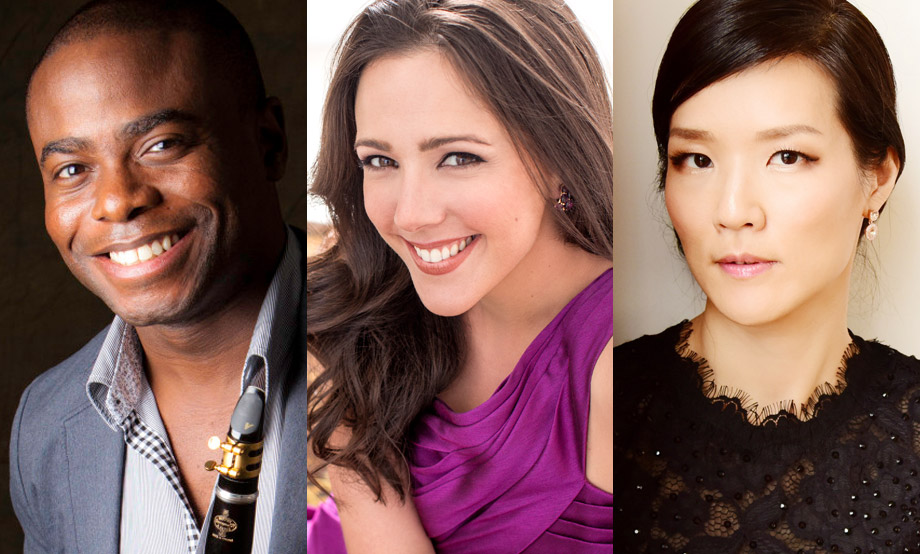Back in the Concert Hall
May 12, 2021
Roscoe, N.Y.
During the first 67 days of 2020, I attended 12 concerts and 4 operas, and then it all ground to a halt.
But now — slowly, hesitantly, cautiously — concert venues are reopening to the public. Yesterday evening my involuntary fast ended when I saw my first in-person concert in 14 months. It was in the Kaufman Concert Hall at the 92nd Street Y, the famous YMHA/YWHA that is one of the major cultural and community centers in New York City.
This was not quite yet a normal concert experience: Long sections of seats were taped off, and the remaining seats were very sparse. A proof of a negative covid test or vaccination was required at the door, our temperatures were taken, and masks had to worn from entrance to exit. There was no milling around the lobby before the concert, and no intermission.
But the lineup of three musicians was irresistible: The wonderful principal clarinetist for the New York Philharmonic, Anthony McGill; one of my very favorite singers, soprano Susanna Phillips; and frequent accompanist for all the really cool recitals, pianist Myra Huang.
It appears that a video of the concert will be available over the next week.
The concert consisted of four compositions for clarinet, but not exactly: The two works for just clarinet and piano were originally written for other instruments, and the other two works on the program are for soprano, clarinetist, and piano, making them more properly classified as songs (but again, not exactly).
The concert began with McGill and Huang playing Schubert’s three-movement “Arpeggione” Sonata, which was originally composed for a type of bowed guitar called an arpeggione. The popularity of the arpeggione lasted barely long enough for this one composition, and so it has since been transcribed for other instruments. I kept trying to hear some kind of bowed string instrument in the notes, but the rippling and bubbling of McGill’s clarinet completely convinced me that the clarinet was Schubert’s true intention.
The concert also ended with Schubert: the mini-song cycle The Shepherd on the Rocks, which I’d never seen in concert but which I’d always interpreted in recordings as a soprano accompanied by the customary piano and (for some odd reason) also a clarinet. Seeing it live with Anthony McGill and Susanna Phillips, it became more of a duet for soprano and clarinet, and thus thrilling in its uniqueness.
Before that finale, McGill played another transcription: The very lovely “Romance” of William Grant Still, who was the most famous non-jazz African American composer of the 1930s and 1940s. “Romance” was originally written for saxophone and piano, so playing it on clarinet isn’t quite a stretch.
The work coming second in the concert was a world premiere by American composer James Lee III called Chavah’s Daughters Speak. This is a song cycle for the same unusual instrumentation as Schubert’s Shepherd on the Rock (soprano, clarinet, and piano), and using the three parts in a wonderfully interactive manner. Unfortunately, there were no program notes printed for this concert, and while substantial fragments of the text were understandable, I couldn’t really put it all together. I am very interested in learning something about the composition, reading the complete text, and hearing it again. Meanwhile, James Lee III has been added to my list of contemporary composers to look out for.
This concert was remarkable in another way: I’ve never heard anything close to the dead silence between movements as I experienced last night. Not a single cough, not even a skillfully suppressed cough. I think this was only partially due to the reduced audience size. Another factor must be that nobody gets colds anymore! Social distancing and masks apparently do really work.
In contrast to the dead silence between movements, we tried to make as much applause noise as a full concert hall. We were so thankful to Anthony McGill, Susanna Phillips, and Myra Huang for this return to live music, and hope for a time when it again becomes a normal part of our lives.
